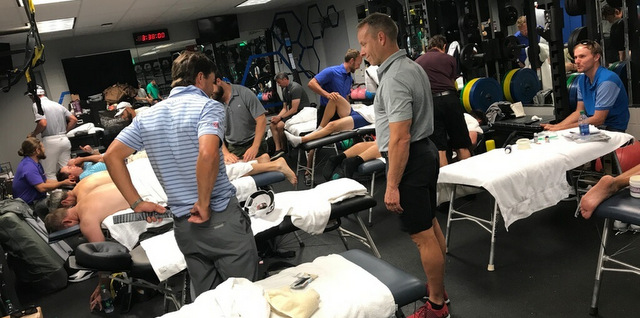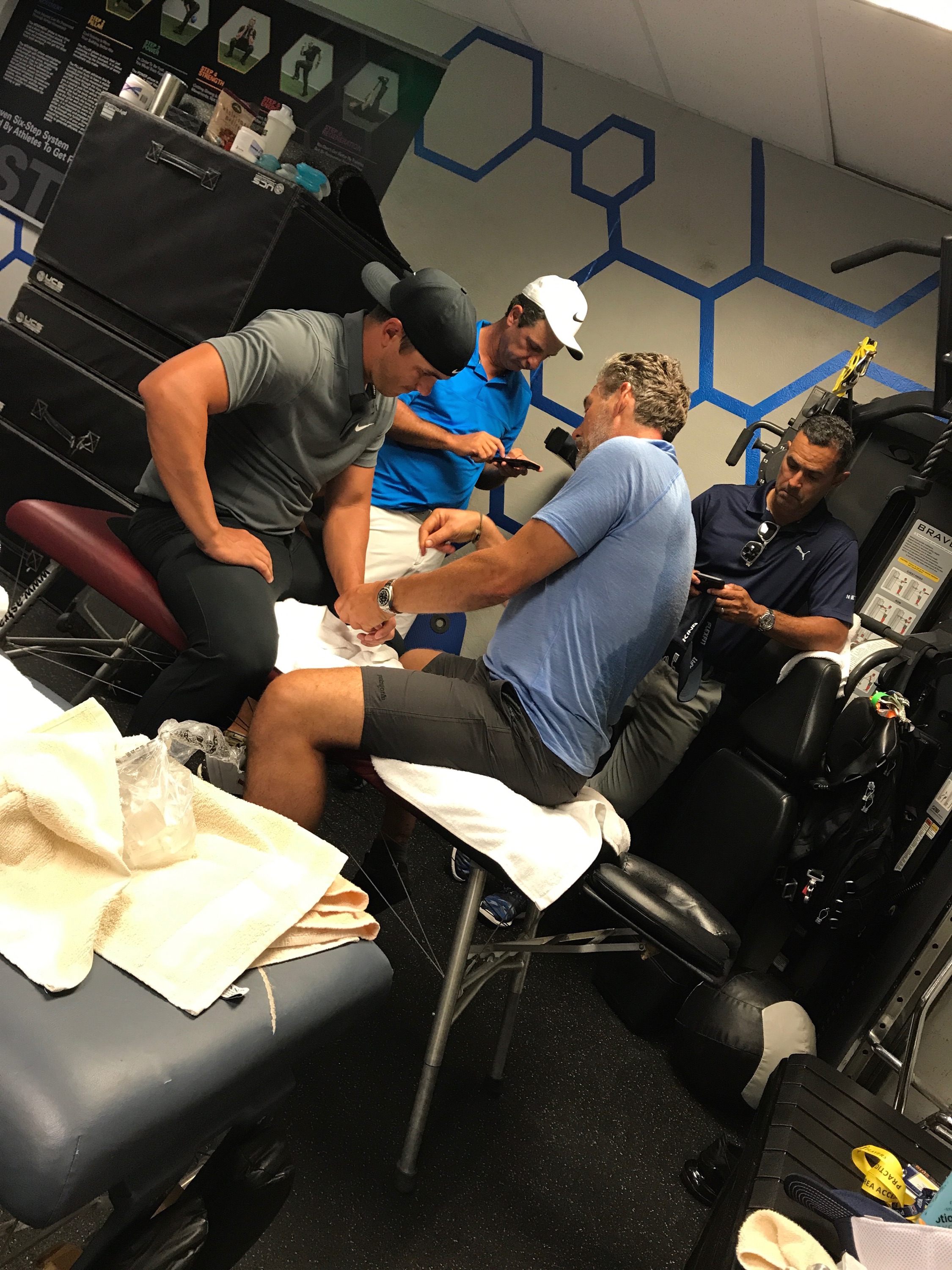IMPROVE MY GAME
Articles
Comparing Treatment Of A TOUR Player And Recreational Golfer

Marc Wahl is one of the most experienced physios in golf. Week in and week out, he takes care of some of the biggest names on the PGA TOUR. We’ve highlighted some of the work that Marc has done in the past, but thought it would be helpful to share how the work that Marc does on TOUR might differ from how he would help an amateur.
Consistency Is King
Unlike when working with amateurs, Marc is usually NOT trying to make a significant change in how a PGA TOUR player moves. This might be somewhat unique to the group he works with, but, in general it represents a difference between recreational players and professional golfers.
"Professional golfers are like racecars. They’re already in the race. I don't need to make major changes, I just need to keep their tires fresh and the engine running efficiently."
“[Marc is] a part of every decision that goes into my body. He’s on the phone and texting with my doctors. I actually speak with him more than anybody else.” - Brooks Koepka told The Suffolk Times for a feature about Marc.
During the season, the goal is to maintain maintaining movement quality to improve durability and ensure a consistent baseline for performance. If a golfer is used to 90° of shoulder rotation, their swing will feel very different if they get off the table with 105°.
“How does his body look and move today in comparison to the last time I saw it good?” says Marc.

“I don’t rush to change something that will affect their golf swing because this person is making a lot of money with their golf swing.”
The daily assessment and communication is a luxury that amateurs don’t have. It also underscores two of the biggest biggest differences between a PGA TOUR player and amateur: 1) professional golfers have SIGNIFICANTLY less physical limitations than amateurs and 2) professional golfers do a better job working around physical limitations they do have. Professional golfers don’t need significant change. They are, after all, already professional.
“Most top players perform well on TPI screens, but even if I see a limitation, I won’t work on it without talking to their coach. Even then, I won’t work to change it unless it improves their goals with the golf swing.”
This underscores the importance of the team approach and the Body-Swing connection. A therapist doesn’t need to know how to coach the swing, they just need to understand the implications that changes in the body could have on the swing. A swing coach doesn’t need to know how to improve mobility in the thoracic spine, they just need to know if that’s what’s keeping the golfer from doing what they want to in their golf swing.
"It’s an awesome responsibility that we have. I can make incredible changes to how someone moves, but why would I do that just because I can? Anything we do has to be aligned with the goals of the athlete and coach."
“Once you get this new range of motion, what are you going to do with that? Are you going to be able to incorporate that into your swing? Who are you going to work with to accomplish that?"
"I never share my opinion of a swing with the player. Period. I always bring it back to ‘What are you and your coach trying to accomplish?"
"Could I have told the guy he’s coming over the top? Yeah, but I’m busy in my clinic. I’m not going to be out there on the range working with them to learn a new pattern with their newfound range of motion. If I say something, it would just be out of ego."
With amateurs, something is usually better than nothing. By using screening results as a baseline, amateurs can move towards a healthier, more durable swing. Whether a recreational player or TOUR pro, it's important to remember that it not only takes time to make physical changes, but to adapt to them in the swing.